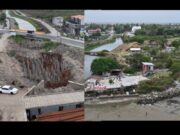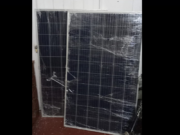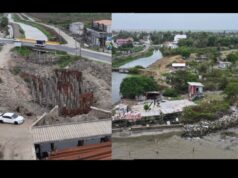President Irfaan Ali today condemned a decree issued by Venezuelan President Nicolas Maduro, two days ago, seeking to fix land and maritime boundaries adjacent to Guyana’s Essequibo coast.
Ali, in an address to the nation today, said that by decreeing that the seas adjacent to Guyana belong to Venezuela, at least two fundamental principles of international law have been violated.
“The first violation is that no State can unilaterally determine its international boundaries, whether they are land boundaries or maritime boundaries,” President Ali said, while adding that the fixing of an international boundary under international law can only result from an agreement between neighbouring States, or a binding determination by an international court or arbitral tribunal.
“Therefore, this attempt by Venezuela to attempt, unilaterally, to fix both its land and maritime boundaries with Guyana is a legal nullity, which cannot, and will not, be respected by any other State in the world, including Guyana,” he stressed.
The Head of State noted that the second violation of fundamental international law is based on the fact that, under well-established rules of international law, there is a fundamental principle that “the land dominates the sea”.
“This means that sovereignty, and sovereign rights in the sea and seabed, emanate from title to the land that forms the coast to which those seas and seabed are adjacent,” he added.
President Ali said that Guyana has always chosen a path of peaceful resolution of the Venezuelan issue within international law.
He reminded that sovereignty over the coast, and the land territory to which it is attached, were awarded to Guyana (then British Guiana) in the 1899 Arbitral Award, whose validity and legally binding character Guyana is confident the International Court of Justice (ICJ) will uphold unequivocally.
“Since Guyana is sovereign over the coast west of the Essequibo River, as far as Punta Playa, it follows, consequently, that only Guyana can enjoy sovereignty and exclusive sovereign rights over the adjacent sea and seabed. This is precisely the issue that is before the ICJ, and which, on 18 December 2020, the ICJ decided to resolve, i.e., whether Guyana or Venezuela is sovereign over that land territory. Guyana is confident that the Court will resolve the issue in its favour, and that this will necessarily also settle the issue of maritime rights in the adjacent sea and seabed,” he noted.











